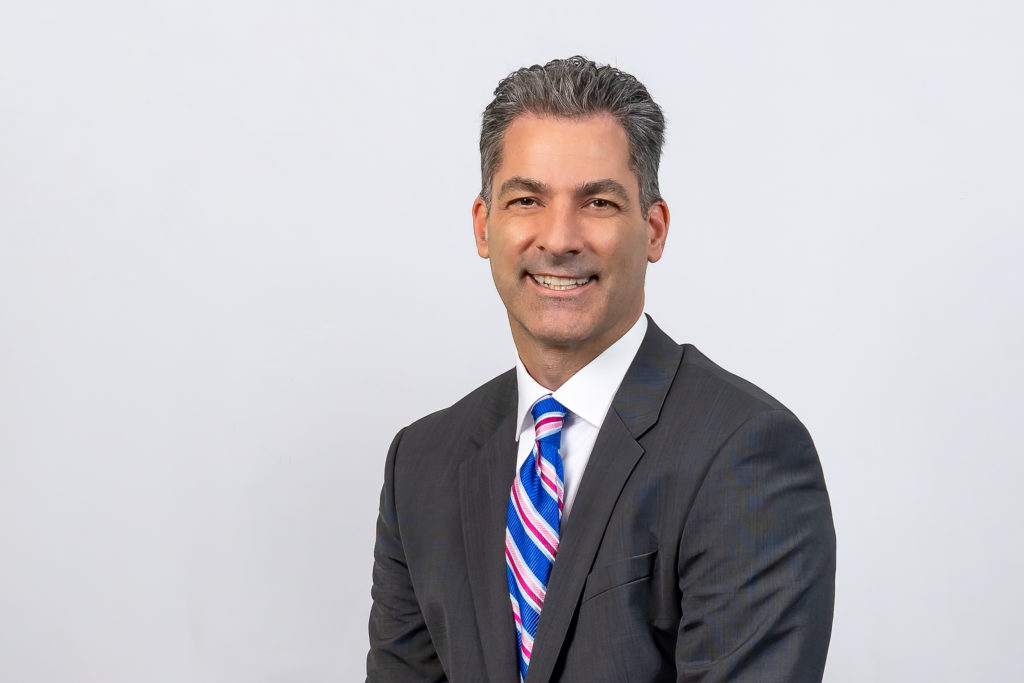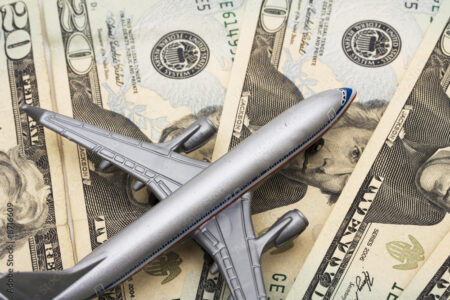Tony Lefebvre, chief operating officer of Signature Flight Support reveals how the company’s network of FBOs managed to remain open during Covid-19 and why the company is committing to a sustainable future for business aviation.
When talking about Signature it is difficult not to mention its size. With more than 210 locations around the world, it has grown over the last decade to become the sector’s largest provider of FBO services and has a major role in the industry. The company’s activities draw attention, whether that is when it is managing to stay open during the Covid-19 pandemic or when investing in the long-term future of the industry through increasing the availability of sustainable aviation fuel.
Tony Lefebvre is the person responsible for Signature Flight Support’s operations. He is fully aware of the challenges of running an aviation business on the scale of Signature’s, as well as the responsibility that comes with its role within the sector. “We are often seen as the FBO industry’s key operator. People use Signature because we offer such a broad ecosystem and large network – we offer consistency versus eight FBOs,” he says.
Signature has a presence in the top 20 metro areas in the USA and increasingly Europe, thanks to an acquisition strategy that has targeted high traffic and growth areas. “Our strategy has been to be highly relevant – to be where people want to go,” Lefebvre says. “That means we operate in a lot of major metropolitan markets which have the most business aviation aircraft movements.
“Sometimes we are the only FBO at an airport. There’s a responsibility that comes with that and we want to continue to be innovative and advance private aviation,” he says.
Workforce culture
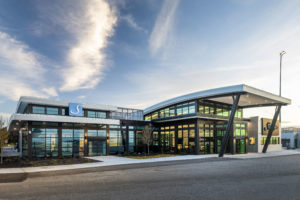
With more than 5000 employees spread across five continents, there are several challenges to maintaining a coherent and consistent culture across the company.
Lefebvre says, “We cover a lot of ground, South Africa, Hawaii, Singapore – managing time zones can be challenging. We rely on a good leadership network and the team that runs the operating the side of the business with me is fantastic.”
Before the Covid-19 pandemic regional management teams would regularly visit FBOs. This has changed to the use of video calling during the pandemic, although regional directors have continued to visit in person to maintain relationships. “Like everyone we’ve had to adapt to this new world and that’s meant ensuring that we continue to communicate effectively,” says Lefebvre.
Service and safety
Another key aspect of effectively running a FBO network that is as large as Signature’s is the availability of accurate and reliable information about what is happening at different bases. Management has access to tools that use information about, for example traffic and staffing levels, from a variety of sources.
“We can see the activity at the FBO and the outcomes of decisions being made. It means we can support with additional resources if they are needed fast,” he says.
Ensuring consistently high levels of customer service is the goal of almost any aviation business. Within Signature, high-quality training is a key to achieving this and the company has invested heavily in training in the last few years. According to Lefebvre, new employees now go through more training and instruction than ever before: “We want to instil common practices and give them the confidence and competence to deliver good service every day.”
Lefebvre’s background is in commercial airlines, where he learnt that training is the way to change behavior and follow best practices. “We have a virtual learning management platform that fortuitously we implemented just before Covid-19 hit. It allows us to offer consistent training from a central location throughout the network, meaning our syllabus is reliably replicated,” he says.
A central part of Lefebvre’s responsibility is operational safety. Many companies seek to continuously improve safety in their operations but achieving this can be elusive. In a similar way to the provision of training, Signature’s approach to safety takes inspiration from the commercial airline sector. “We have borrowed and adapted the Safety Management System that are used by commercial air carriers. Continuous improvement means we assess risk and build policies to mitigate it,” he says.
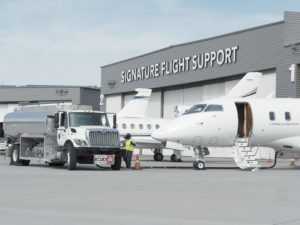
“Our safety culture is extraordinarily active. Everyone gets the Safety 101 basics, like PPE, and situational awareness, how to be safe in their work environment. We then go into the aspects of their job. No one just goes out and starts towing and de-icing aircraft. There are hurdles and stage gates a person has to go through to be qualified.”
Using technology the level of data available within the SMS is also very detailed. For example, managers can see how many tows of an aircraft an individual worker has performed. As well as operational data there is a network of cameras on Signature’s ramps and in hangars to provide feedback and review activities. This helps management to solve problems quickly when they arise, for example providing refresher training if there has been a spate of incidents with similar characteristics. And if there is a rise in incidents at a particular base, resources can be allocated to help them improve. “The level of data we have is very impressive, says Lefebvre. “We are not only active in giving people the platform but also on the assurance side, ensuring that people are working safely every day.”
Pandemic operations
There is little doubt that the Covid-19 pandemic has hit business aviation hard this year. Save for a couple of places where airports temporarily suspended service, Signature has not closed any FBOs or offices during the pandemic. Lefebvre says, “There has been a little bit of a slowdown, but we are open at all of the locations that we were operating going into the pandemic.”
“We quickly recognized the impact that Covid-19 was having in our communities and we took measures to create a safe workplace where we mitigate the risks, with operational continuity plans in place. We acquired PPE early and leaned in hard with practices such as social distancing and hand washing, not just at work but at home.
“We audit to make sure procedures are being adhered to and that personal protective equipment is being used. Our facilities are disinfected daily through a 50 point checklist.”
During the early phases of the pandemic regular communication was necessary to keep all areas of the business informed of the rapidly evolving situation of how the spread of the virus was impacting operations.
Lefebvre says, “We communicated well, but as well as Covid-19 fatigue you can get call fatigue. Our messaging is simple, targeted and straightforward – people have a job to do away from Zoom or Microsoft Teams and that is often flying medical personnel, government representatives or transporting PPE.
“We’ve also reduced the number of ‘corporate’ daily tasks people have to do so they can focus more on running the business.”
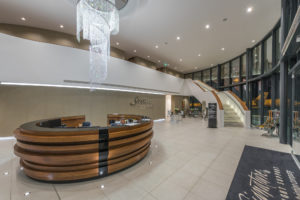
Sustainability goals
The Covid-19 pandemic has not dented Signature’s ambitions to improve the sustainability of its operations. During September 2020 the company announced that it was establishing the sector’s first permanent supply of Sustainable Aviation Fuel at its San Francisco International Airport and London Luton FBOs as part of its company-wide Signature Renew environmental initiative. Lefebvre says that the response from customers and perhaps more crucially the uptake of SAF has been very positive – the FBO at San Francisco has sold out of every single gallon bought to it so far.
“We needed customer demand to start offering SAF and partners willing to share the risk. It’s the right thing for the industry to do and puts a marker down,” says Lefebvre. “Our intention is to buy more SAF and we are looking for ways to grow our supply. As we commit to purchase more, suppliers produce more, creating momentum for sustainable Jet A.”
The SAF market is complicated and the largest demand is from airlines. Governments around the world are pushing for aviation to reduce carbon emissions, but Lefebvre believes the future of the sector will be more sustainable: “Supply of SAF is going to take some time to come through as demand increases, but it is the most promising way for aircraft operators to reduce their greenhouse gas emissions, including up to 25% at current blend rates.
“Combined with aircraft equipped with technology to reduce fuel burn and the use of carbon offsets as a stop gap until we can replace supply one for one, we will get to a point where you can fly carbon netural and you can do it with Signature.”
As well as the SAF activity, the company’s Renew program aims to more than triple the number of its FBOs that are equipped with solar panels. Seven of its FBOs currently have solar PV on site. The company is installing EV charging infrastructure and is moving all of its ground support equipment that can be electric to be fully-electric. Where vehicles can’t be electric they use biodiesel. “Our intention is to accelerate our adoption of sustainable technology in the air and on the ground,” Lefebvre says.
The Renew program reveals the long-term planning that Signature engages in and in the future there are plans to continue to expand the network. Lefebvre says, “We are always actively looking to grow the business. We added Geneva and Sion during the pandemic and will continue to grow our locations in the markets where it makes sense.”
However, the immediate goal for the business is to maintain stability. Lefebvre says, “Nobody knows exactly what will happen to travel patterns when business returns. We will be flexible and manage accordingly over the next 18 months, although we’ve seen positive signs during lulls in the infection rates that suggest a return of business.
“We are focused on providing customer experiences that are highly customized and separating our brand from others in the market place. We want to provide a network that is relevant to our customers and still provides the customer service that feels like a local FBO.”


